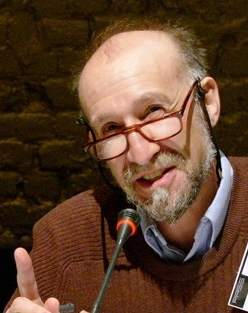 By Thomas Frank
By Thomas FrankThe New York Times
Over the last month I have tried to describe conservative power in Washington, but with a small change of emphasis I could just as well have been describing the failure of liberalism: the center-left’s inability to comprehend the current political situation or to draw upon what is most vital in its own history.
What we have watched unfold for a few decades, I have argued, is a broad reversion to 19th-century political form, with free-market economics understood as the state of nature, plutocracy as the default social condition, and, enthroned as the nation’s necessary vice, an institutionalized corruption surpassing anything we have seen for 80 years. All that is missing is a return to the gold standard and a war to Christianize the Philippines.
Historically, liberalism was a fighting response to precisely these conditions. Look through the foundational texts of American liberalism and you can find everything you need to derail the conservative juggernaut. But don’t expect liberal leaders in Washington to use those things. They are “New Democrats” now, enlightened and entrepreneurial and barely able to get out of bed in the morning, let alone muster the strength to deliver some Rooseveltian stemwinder against “economic royalists.”
Mounting a campaign against plutocracy makes as much sense to the typical Washington liberal as would circulating a petition against gravity. What our modernized liberal leaders offer — that is, when they’re not gushing about the glory of it all at Davos — is not confrontation but a kind of therapy for those flattened by the free-market hurricane: they counsel us to accept the inevitability of the situation and to try to understand how we might retrain or re-educate ourselves so we will fit in better next time.
This last point was a priority for the Clinton administration. But in “The Disposable American,” a disturbing history of job security, Louis Uchitelle points out that the New Democrats’ emphasis on retraining (as opposed to broader solutions that Old Democrats used to favor) is merely a kinder version of the 19th-century view of unemployment, in which economic dislocation always boils down to the fitness of the unemployed person himself.
Or take the “inevitability” of recent economic changes, a word that the centrist liberals of the Washington school like to pair with “globalization.” We are told to regard the “free-trade” deals that have hammered the working class almost as acts of nature. As the economist Dean Baker points out, however, we could just as easily have crafted “free-trade” agreements that protected manufacturing while exposing professions like law, journalism and even medicine to ruinous foreign competition, losing nothing in quality but saving consumers far more than Nafta did.
When you view the world from the satisfied environs of Washington — a place where lawyers outnumber machinists 27 to 1 and where five suburban counties rank among the seven wealthiest in the nation — the fantasies of postindustrial liberalism make perfect sense. The reign of the “knowledge workers” seems noble.
Seen from almost anywhere else, however, these are lousy times. The latest data confirms that as the productivity of workers has increased, the ones reaping the benefits are stockholders. Census data tells us that the only reason family income is keeping up with inflation is that more family members are working.
Everything I have written about in this space points to the same conclusion: Democratic leaders must learn to talk about class issues again. But they won’t on their own. So pressure must come from traditional liberal constituencies and the grass roots, like the much-vilified bloggers. Liberalism also needs strong, well-funded institutions fighting the rhetorical battle. Laying out policy objectives is all well and good, but the reason the right has prevailed is its army of journalists and public intellectuals. Moving the economic debate to the right are dozens if not hundreds of well-funded Washington think tanks, lobbying outfits and news media outlets. Pushing the other way are perhaps 10.
The more comfortable option for Democrats is to maintain their present course, gaming out each election with political science and a little triangulation magic, their relevance slowly ebbing as memories of the middle-class republic fade.
Thomas Frank, a guest columnist, is the author, most recently, of “What’s the Matter With Kansas?’’
Photo credit: Thomas Frank. (The New York Times)
Technorati tags: Thomas Frank, The New York Times, Economy, Democratic Party, Politics, Government, Social Conditions, Social Trends, news, commentary, op ed


 AND BLASTS BUSH!
AND BLASTS BUSH!
















